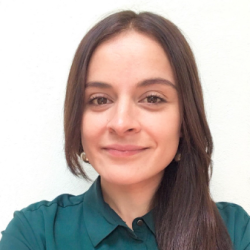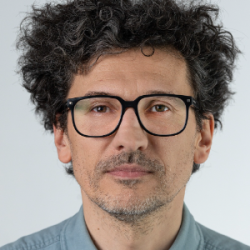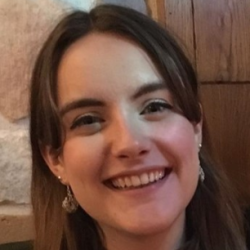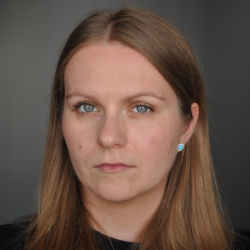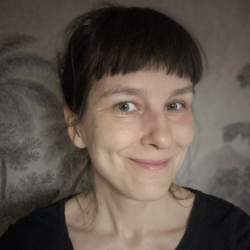Europeana 2025 takes place against a challenging global context. The extreme consequences of climate change, war in Ukraine, geopolitical instability and global conflicts threaten lives, peace and security. AI drives innovation, but poses challenges for society. At the same time, 2025 brings change, with a new European Commission and Parliament reshaping the political landscape and offering an opportunity to revitalise the European project.
Under these circumstances, digital cultural heritage can serve as a harbour and greenhouse of values like freedom, solidarity and democracy. The common European data space for cultural heritage can support efforts to reinvigorate the European project, at a time when the EU aims to lead with value-based technology and develop alternative, publicly funded digital infrastructures that serve the common good. In this context, protecting what makes up our ‘European way of life’ - our shared cultural heritage - and ensuring its preservation through digital technologies, gains an even greater significance. Encouraging the reuse of cultural heritage data - be it in education, enjoyment or research - reinforces its societal relevance, enhances the competitiveness of our sector and opens up innovative approaches to the wider challenges that we face.
Our call for proposals for sessions and interventions to be held during Europeana 2025 focuses on the themes of Preserve, Protect and Reuse. Find out more about what these themes encompass, and the topics we want to explore through them, below.
Preserve
Digital technologies offer exciting possibilities to preserve cultural heritage, allowing future generations to enjoy, learn and benefit from it. But preservation does not only relate to physical heritage; in a digital era, it also means making sure digital materials remain accessible over time. Sustaining and maintaining digital repositories and infrastructures to ensure the longevity, continuity and accessibility of digital cultural heritage online and in the data space.
Under this conference theme, we are interested in receiving proposals related to:
Technical solutions and approaches which preserve and enrich cultural heritage data in the common European data space for cultural heritage
Developments which ensure permanence, persistence and sustainability of cultural heritage data in the data space
Innovative examples of how artificial intelligence and 3D technologies are being used to preserve tangible and intangible heritage, and digital practices
Collaborations which seek to preserve and build connections between data from different sectors and industries for its maintenance and preservation
Protect
Cultural heritage is vulnerable to the passage of time, the destruction of war and the effects of climate change. While we seek to preserve our cultural heritage, we also need to take active steps to protect it and the digital processes which underpin it; and ensure the cybersecurity of the cultural heritage sector. This is a key priority of the Polish Presidency, and crucial as we look to build a robust and secure data space which offers participants control of their own data. Europeana 2025 supports Poland’s candidacy to the UNESCO World Heritage Committee ‘United for the Protection of Heritage’, referring to its commitment to international cultural cooperation and heritage preservation.
Under this conference theme, we are interested in receiving proposals related to:
Innovative solutions and digital approaches to protecting heritage at risk from threats such as climate change, conflict and illicit trafficking. We are particularly interested in giving a platform to the inspiring work of colleagues working to preserve the cultural heritage of Ukraine.
The use and protection of personal data made available through the common European data space for cultural heritage (within cultural heritage data and metadata)
Examples of how artificial intelligence is being used to protect tangible and intangible heritage.
Activities to protect and strengthen the cybersecurity of cultural heritage institutions and data infrastructures
Examples of how cultural heritage institutions, professionals and collections can foster digital and media literacy, enabling users to engage with digital content critically and responsibly, countering disinformation and fake news.
Reuse
Digital cultural heritage is a shared public good, and should be open for all to enjoy and benefit from. Encouraging its reuse for education, enjoyment, research and creativity, as well as in other industries like tourism and media, brings cultural heritage to new audiences and sharpens the innovation and competitiveness of our sector. The Europeana Public Domain Charter sees a thriving and healthy public domain as essential to the social and economic well-being of society. Advocating for open access and non-restrictive copyright practices is key to enable and support this reuse for generations to come.
Under this conference theme, we are interested in receiving proposals related to:
Stories of how cultural heritage data from the data space has been reused for tourism, education, research and the creative industries, and how it could be reused in other data spaces.
Examples and learnings of how advanced tech has reused cultural heritage data in, for example, augmented and virtual reality, and digital 3D experiences.
Approaches to managing the reuse of cultural heritage data by Artificial intelligence (for example, through data mining) and the implications for cultural heritage institutions in permitting or disallowing this.
How cross-sectoral collaboration between different sectors and data spaces is supporting the reuse of cultural heritage data and content, in particular in a research context.

